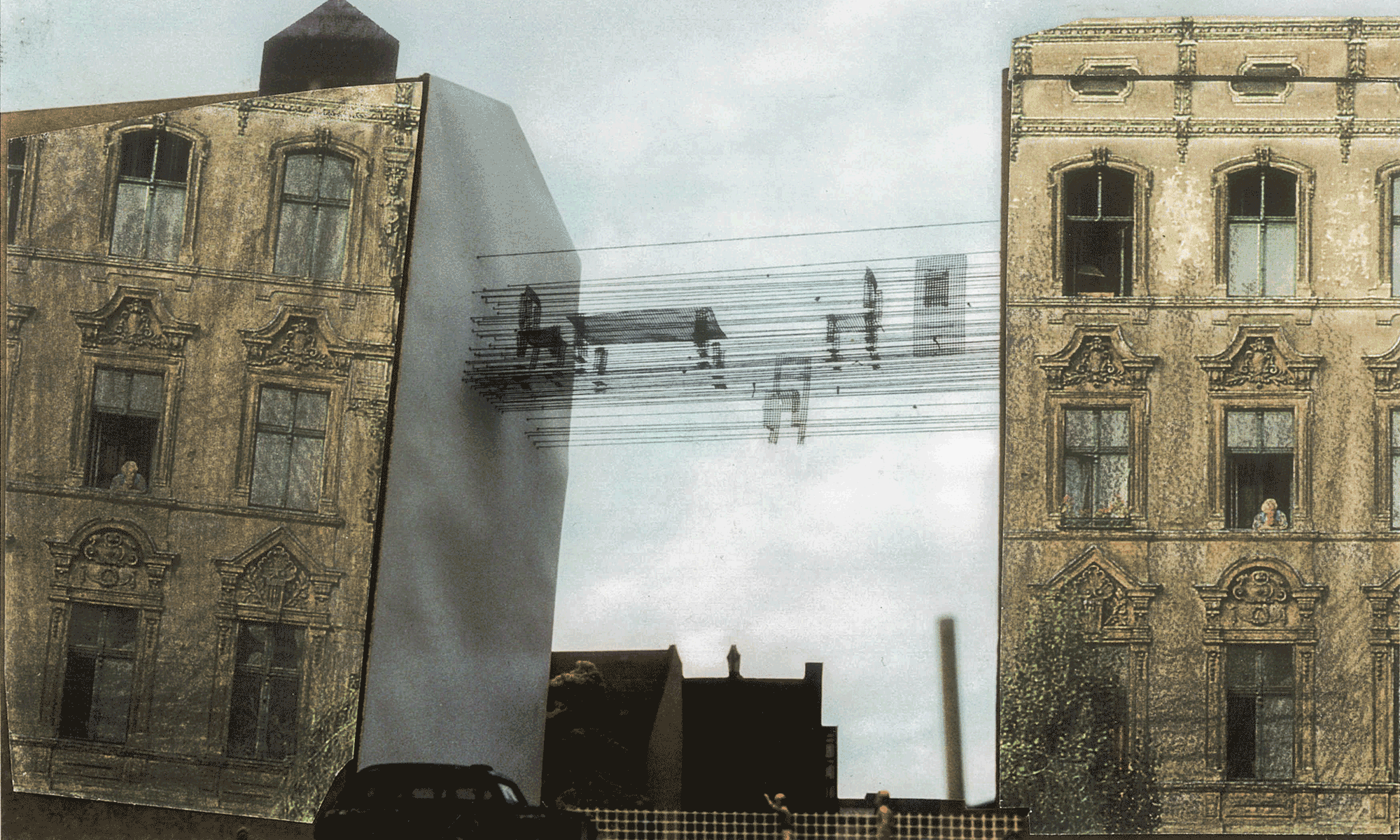Research collaboration (1996-1998)
With Klaus Amann and Georg Jongmanns (University of Bielefeld)
Our research question:
How will workflows in company management change if the paper format is increasingly getting replaced by electronic files?
Papers flow through the departments. They help to clarify “what is my job, what is your job”. Processes are processed via papers, and thereby become paper processes. They can be opened, closed, put aside, and taken up again. Papers are not least made of paper and have a special visual and haptic quality. They can be stacked and sorted or attract attention and help to organize the course of conversations. Papers form places that serve as meeting points where casual routines can be carried out. With our camera focused on management practices that include paper, we were finally able to become aware of how paper practices show at least certain aspects of the organization of a company.
Not yet denoted “camera ethnography”, this essay already points to the potential of a visual methodology that uses filming, cutting, and arranging as epistemic research practices.
Film (unpublished): Papier Kommunikation (1998), by Klaus Amann, Georg Jongmanns, and Bina E. Mohn
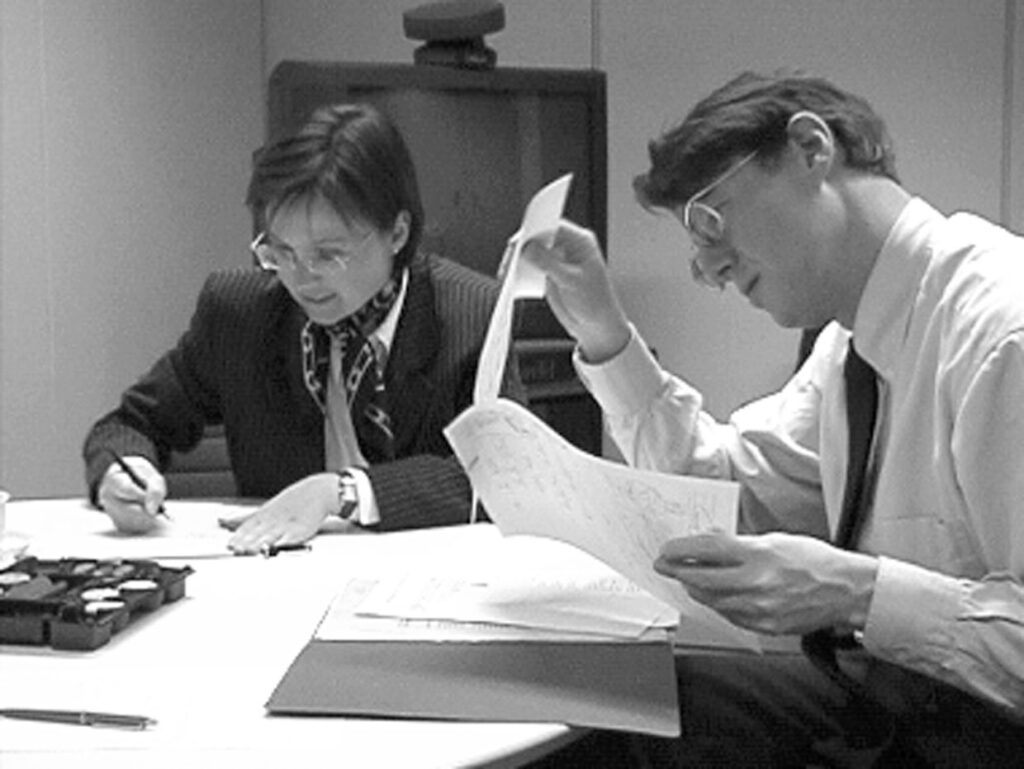
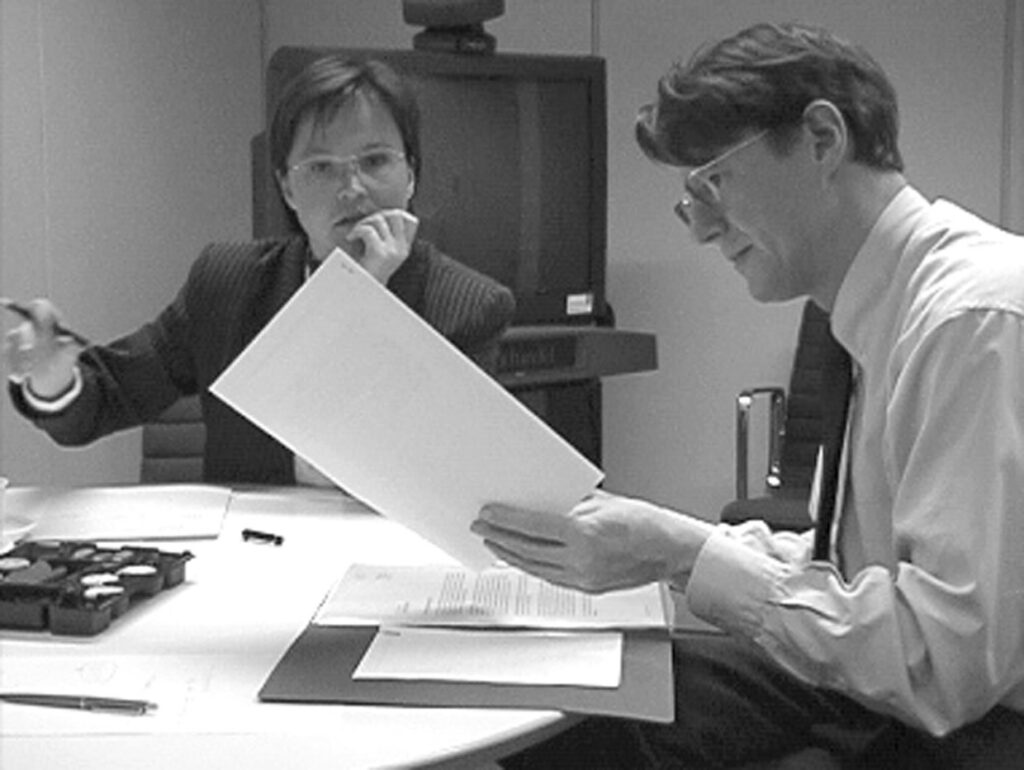
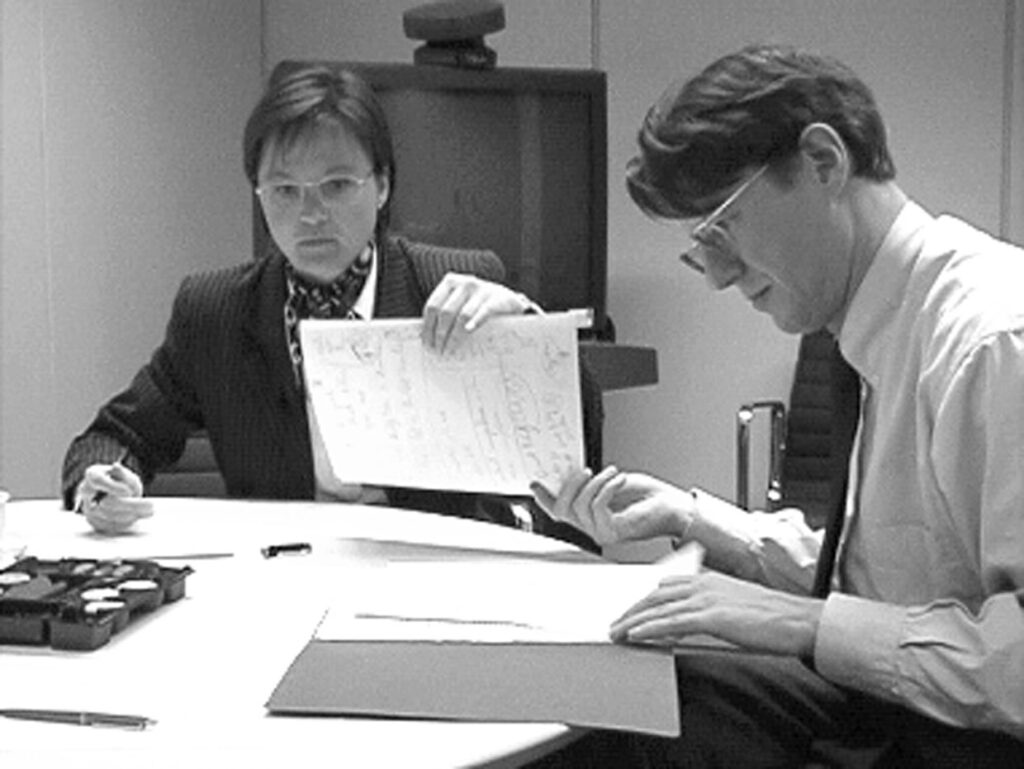
Camera ethnographer: Georg Jongmanns
Research collaboration (2006-2007)
With Jutta Wiesemann (University of Kassel)
The focus on paper was revived about 10 years later. In addition to interactive games with objects, learning scenes with paper became the focus of a camera ethnographic study at an elementary school.
Our research questions:
How are the didactic materials handled? How are the pupils’ paper products manufactured? How are they used (creatively)? How do pupils manage their everyday school life between books, sheets of paper, and cards? How are these learning materials used as material objects in the design of the learning process? Or: How can one get rid of them and the associated constraints?
By focusing on pupils’ hands in particular, camera ethnography brought the fascinating micro-interaction of children into view, showing how it is possible to work hand in hand, even in a school statistically classified as socially disadvantaged.
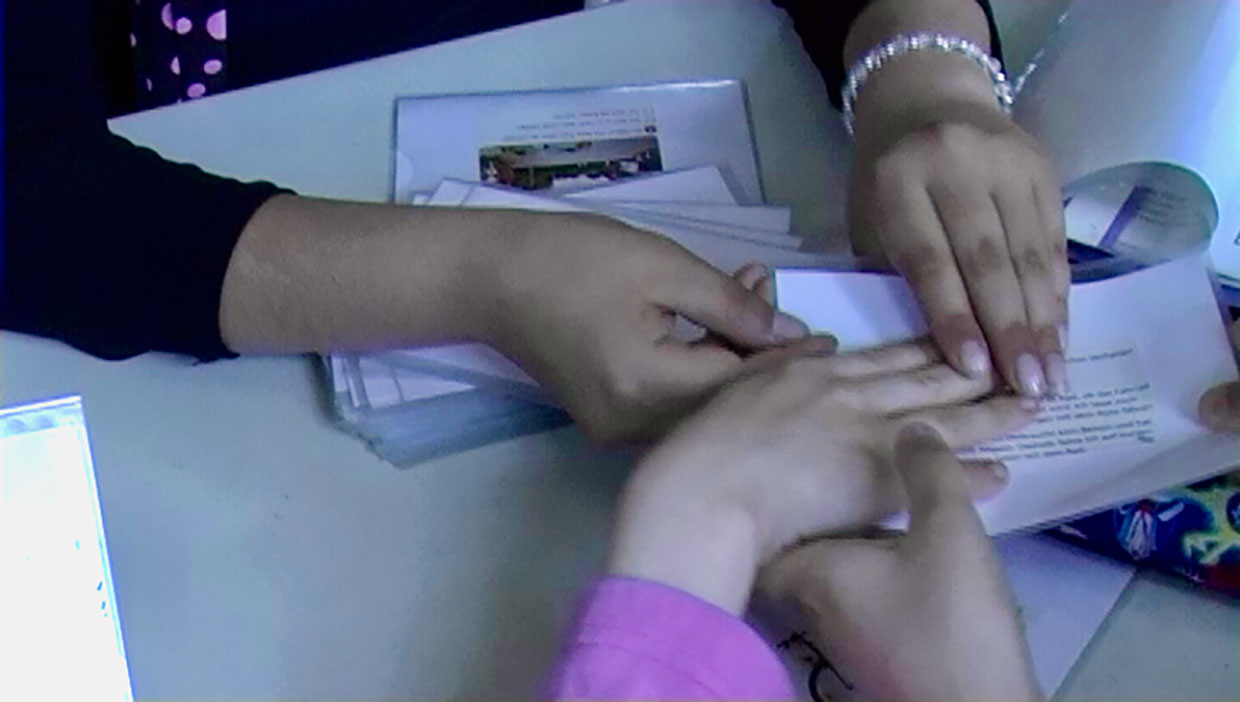
Film collection „Handwerk des Lernens“ (Mohn/Wiesemann 2007)
Accompanying publication for the DVD (German) with a contribution by Jürgen Streeck
